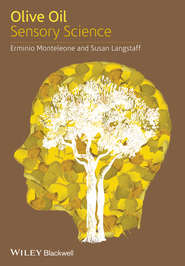
Olive Oil Sensory Science (Erminio Monteleone)
Описание книги:
The olive oil market is increasingly international. Levels of consumption and production are growing, particularly in “new” markets outside the Mediterranean region. New features of product optimization and development are emerging, and along with them new marketing strategies, which benefit from a clear understanding of the sensory aspects of foods, as well as adequate sensory techniques for testing them. Recently developed sensory methods and approaches are particularly suitable for studying the sensory properties of olive oils and their function in culinary preparation or in oil-food pairing. Each chapter of Olive Oil Sensory Science is written by the best researchers and industry professionals in the field throughout the world. The book is divided into two main sections. The first section details the appropriate sensory methods for olive oil optimization, product development, consumer testing and quality control. The intrinsic factors affecting olive oil quality perception are considered, as well as the nutritional, health and sensory properties, underlining the importance of sensory techniques in product differentiation. The agronomic and technological aspects of production that affect sensory properties and their occurrence in olive oil are also addressed. Sensory perception and other factors affecting consumer choice are discussed, as is the topic of olive oil sensory quality. The second part of this text highlights the major olive oil producing regions of the world: Spain, Italy, Greece, California, Australia/New Zealand and South America. Each chapter is dedicated to a region, looking at the geographical and climactic characteristics pertinent to olive oil production, the major regional olive cultivars, the principle olive oil styles and their attendant sensory properties. Olive Oil Sensory Science is an invaluable resource for olive oil scientists, product development and marketing personnel on the role of sensory evaluation in relation to current and future market trends.













